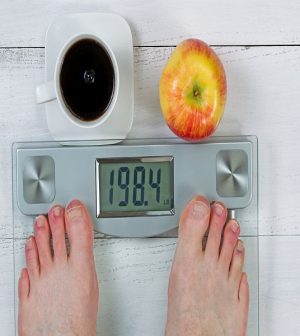- Could Your Grocery Store Meat Be Causing Recurring UTIs?
- Are You Making This Expensive Thermostat Error This Winter?
- Recognizing the Signs of Hypothyroidism
- 10 Strategies to Overcome Insomnia
- Could Artificial Sweeteners Be Aging the Brain Faster?
- Techniques for Soothing Your Nervous System
- Does the Water in Your House Smell Funny? Here’s Why
- Can a Daily Dose of Apple Cider Vinegar Actually Aid Weight Loss?
- 6 Health Beverages That Can Actually Spike Your Blood Sugar
- Treatment Options for Social Anxiety Disorder
How Your Genes Affect the Number on Your Scale

Could your genes be keeping you from losing weight?
While you shouldn’t use a family tendency toward wide hips or an apple shape as an excuse to stray from a healthy diet, acceptance can help you reassess your personal ideal and make you happier with your body.
Hundreds of genes have been linked to weight. Some affect where fat is distributed on your body while others impact metabolism, cravings and even whether you reach for food to cope with stress. Their influence on overweight can be as little as 25% or as much as 80%. Signs that genes could be connected to your innate weight include having one or both parents who are overweight, and having a hard time losing weight even with strict dieting and exercise.
But the answer isn’t to starve yourself. That can backfire, putting your body into starvation mode and slowing metabolism and weight loss even more. It can also leave you feeling fatigued and cranky from a lack of food — on top of frustration about your physical appearance.
You can’t change your genes but you can improve variables, like getting enough sleep and easing stress. Also, focus on achieving better health rather than a perfect shape. That means taking steps to increase the amount of exercise you do and boosting the nutrition quality of the foods you eat. Rather than being obsessed with calorie-cutting, try cutting out (or at least cutting down on) refined foods and those with empty calories like many packaged foods.
If you aren’t able to make these lifestyle choices on your own, a dietitian can help. He or she might even be able to show you that you’re already at your best “you.”
More information
The U.S. Centers for Disease Control and Prevention has more on genetics and overweight.
Source: HealthDay
Copyright © 2026 HealthDay. All rights reserved.










